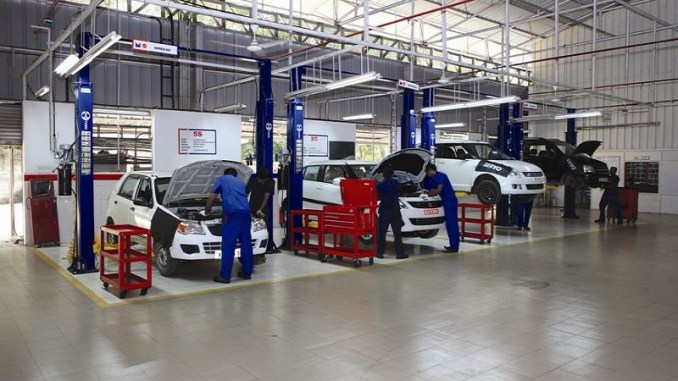All Categories
Featured

[/image]
Your automobile's battery is essential for keeping points running efficiently. Like any kind of part of your car, the battery doesn't last forever.
Why Checking Battery Health And Wellness Is Vital. A healthy battery is important for a dependable driving experience. When a battery starts to stop working, it can lead to reduce engine beginnings, flickering lights, and in some situations, total power failure, leaving you stranded.

Indications That Your Vehicle Battery Might Be Weak. Prior to you start screening, it is very important to acknowledge the typical indicators of a weak battery. Look out for the following symptoms:
Difficulty Starting the Car: If your engine cranks slowly when starting, it can suggest that your battery is having a hard time to offer the needed power. Caution Light on the Dashboard: Many contemporary automobiles will certainly have a battery warning light that comes on if there's an issue with the battery or charging system. Dimming Lights: If your fronts lights or interior lights lower when starting your automobile, it may mean the battery is not holding a charge properly. Rust: Examine the battery terminals for any visible corrosion. If you notice a white, grainy compound around the terminals, maybe an indication of a failing battery. Old Battery: Batteries usually last around 3-5 years. If your battery is older and revealing any one of these symptoms, it might be time to check its health. How to Inspect Your Car's Battery Health and wellness. Visually Evaluate the Battery:. Start by visually inspecting your battery. Look for any cracks, protruding, or leaks on the battery's surface area.
Check the Battery Voltage with a Multimeter:. Among the most accurate ways to check your battery is by gauging its voltage. This can be done making use of an electronic multimeter. Below's just how:
Set the multimeter to DC voltage and pick the 20-volt array. Transform off the engine and attach the red (favorable) probe to the favorable terminal and the black (unfavorable) probe to the negative terminal of the battery. A totally charged, healthy and balanced battery must reveal around 12.6 volts or higher. If the reading is in between 12.4 and 12.6 volts, your battery remains in excellent problem. If the voltage is reduced than 12.4 volts, your battery may be weak and can need reenergizing or replacement. Anything below 12 volts suggests the battery is nearing the end of its life. Do a Lots Test:. A tons test helps establish exactly how well the battery executes when the vehicle is running. While this test is normally done by an expert, you can carry out a fundamental version in your home utilizing a battery load tester. Here's how:
Turn off the auto and inspect the battery voltage with a multimeter as you did earlier. Begin the automobile and transform on the headlights and a/c to place a lots on the battery. If the voltage drops considerably below 12 volts when the engine is running, it could imply the battery is falling short to bill appropriately. If you do not have a lots tester, you can also take note of how the electric systems of the car behave under tons. If lights flicker or other systems act erratically, your battery might not be holding a cost. Inspect the Charging System:. Your alternator is in charge of billing the battery while the vehicle is running. A faulty generator can impact the battery's efficiency, also if the battery itself is in great form. To examine the alternator's output:
Beginning the vehicle and inspect the battery voltage once more. The voltage needs to be between 13.7 to 14.7 volts when the cars and truck is running. If it's outside this array, the alternator may not be charging the battery effectively, which could lead to battery failure gradually. When to Replace Your Battery. If the outcomes of your examinations indicate that your battery is weak or incapable to hold a charge, it might be time to replace it. Right here are some reasons you ought to think about replacing your battery:
Battery Age: If your battery is older than 3-5 years and showing indicators of weakness, it's typically best to replace it. Irregular Performance: If you require to jump-start your vehicle regularly or discover that the automobile has difficulty starting, it's a clear indication that the battery is stopping working. Visible Damages: If the battery is cracked, dripping, or protruding, it is hazardous to continue utilizing it, and it must be changed immediately. Final Thought: Routine Battery Upkeep for Smooth Driving. Your vehicle's battery is essential for trustworthy performance, and routine checks are the trick to guaranteeing it remains healthy and balanced. By following these straightforward actions to evaluate your battery's wellness, you can catch concerns early and avoid being captured off guard by a dead battery. Regular inspections, voltage tests, and lots examinations are terrific methods to maintain your battery in check. If you're ever before in doubt concerning your battery's problem, it's always an excellent concept to speak with a specialist auto mechanic who can give a detailed diagnosis. Taking care of your battery today will certainly maintain your auto running smoothly tomorrow!
Latest Posts
Find Out Why Chicago Drivers Select Montclare Auto Repair for Reliable Service and Significant Savings
Uncover Premier Auto Repair Care offered by Montclare Auto Repair – Keep Your Car Running Smoothly
Discover Reduce Expenses on Car Maintenance with Montclare Auto Repair’s Limited-Time Deals
More
Latest Posts
Find Out Why Chicago Drivers Select Montclare Auto Repair for Reliable Service and Significant Savings
Uncover Premier Auto Repair Care offered by Montclare Auto Repair – Keep Your Car Running Smoothly
Discover Reduce Expenses on Car Maintenance with Montclare Auto Repair’s Limited-Time Deals